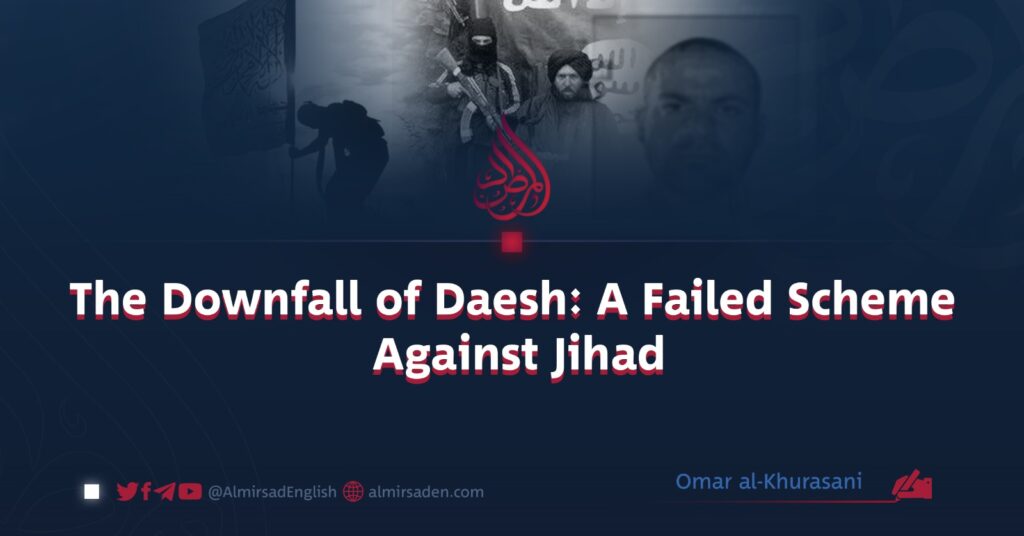Written by: Abu Rizwan Ansari
Daesh was a calculated venture, with the sole aim of discrediting and dismantling jihadist movements.
This scheme was devised with the objective of discrediting these movements, thereby causing the general Muslim populace to become disenchanted with the notion of jihad and to sever ties with such organizations. However, by the grace of Allah, not only was this nefarious plan thwarted, but the path of jihad for contemporary jihadist organizations became even more prosperous and blessed.
In essence, every movement and ideology reveals its core objectives from its very inception. Daesh, too, in its early days, showcased its barbarity and savagery, proving to the world that this group adheres to no lawful code or principle; rather, it is akin to a herd of wild, bloodthirsty beasts.
Daesh sought to tarnish the sacred mission of jihad under the guise of Islam and corrupt the noble objectives of the mujahideen through its vile ambitions and dirty politics. However, Allah, in His infinite wisdom, has decreed that His light of guidance shall always shine forth. In accordance with this divine promise, Daesh was cast into failure.
Allah the Exalted says:
“They wish to extinguish the light of Allah with their mouths, but Allah will perfect His light, even if the disbelievers dislike it.”
In this blessed verse, Allah beautifully introduces the sacred path of jihad and exalts its significance. The verse clearly states that there will always be those who seek to suppress and distort the pure light of Allah, but Allah will disgrace them and reduce their schemes to dust.
The scheme concocted by ISIS was among such attempts—an endeavour to tarnish the pure and noble path of jihad. But let it be known, Allah, through His righteous and sincere mujahideen, will forever grant honor and magnificence to this sacred duty.
The Main Causes Behind the Downfall of Daesh:
Daesh, in a rather short span of time, carried out brutal atrocities, cutting its organizational lifespan short, far sooner than even the most pessimistic of predictions.
1. Lack of a Strong Ideological Foundation:
Despite possessing intelligence networks, military prowess, and defensive capabilities, Daesh lacked a solid and robust ideology. This deficiency prevented them from achieving their goals, leading to their inevitable downfall.
Those who pledged allegiance to Daesh had no clear ideology or conviction that could sustain them. Their scattered thoughts, unlawful actions, and selfish motives led to their demise much sooner than expected.
2. Lack of Public Support:
Daesh, being neither a humanistic nor a religious phenomenon, acted in complete contradiction to the beliefs and values of the people. As a result, it swiftly lost whatever public and religious support it may have initially garnered and was banished from the sociopolitical stage.
Due to its inherent opposition to human values and religious sensibilities, ISIS alienated itself from the public, stripping away any semblance of legitimacy. Consequently, it lost the backing of the masses, leading to its ultimate eradication.
